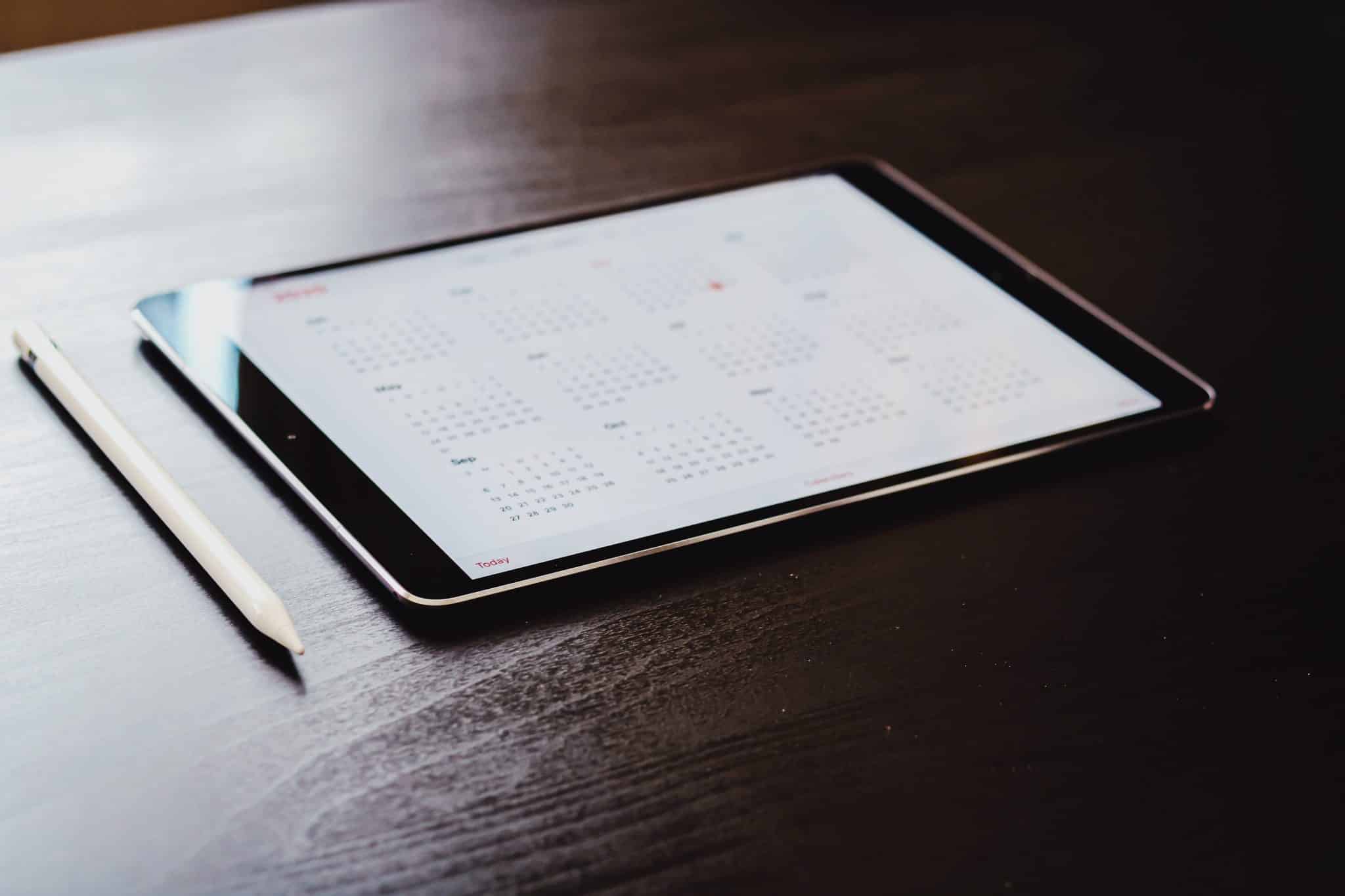10 research-backed ways to build your confidence at work
Practical tips you can use for an immediate boost to your confidence levels

Work can do a number on our confidence even at the best of times. The effects of stress, poor job conditions or a change in role or responsibilities can rapidly spiral. Before we know it, we’re overthinking things, doubting ourselves, and feeling like we don’t belong. But wait! It doesn’t have to be that way.
In this post, we’re going to cover what the science says about building your confidence at work. But first, you need to know what confidence is and what’s happening in your brain when you lose or build it.
The biological basis of low confidence at work
It’s difficult for our brains to process the mass of sensory information we’re faced with in a typical day. To make it easier, we all have a Reticular Activating System (RAS) and it’s job is to learn from our experiences and make processing short-cuts based on our belief system.
Sounds helpful right? But it can work against us, especially when it comes to building confidence.
For example, when I was new to public speaking, I stuttered over my words. The stutter made me look nervous which meant others thought I was nervous. The idea that others thought I lacked confidence made me… well… lack confidence, and the whole thing became a significant source of stress.
This unpleasant experience led me to avoid future public speaking opportunities, which had a negative impact on my working life. So what was going on?

When events trigger stressful thoughts, our bodies release stress chemicals that have a wide range of effects. When I became stressed while public speaking, my body produced these chemicals and I associated the effects with the activity. This led me to avoid situations where public speaking might crop up and when I had to do it, the stress made me more likely to stutter, causing the same situation to happen again.
Frustratingly, this cycle reinforced the negative memory of the event because my RAS skipped the logic and told my brain that my belief about public speaking being stressful was correct. The result is a self-fulfilling prophecy that’s difficult to break.
The truth is, we’re wired for survival so we’re wired to spot threats. We have an innate negativity bias that makes us focus on the worst of a situation. And this is especially true at work.
Fortunately, we can break this cycle by being aware of how it operates and challenging the negative thought patterns it creates. The 10 techniques discussed in this article have been shown to do just that.
So let’s take a look at them now:
Table of Contents
1. Start a journaling practice to build confidence at work
It may sound straight out of the 1990s, but evidence suggests that journaling can have a profound and positive impact on your confidence.1
Personally, I never took to journaling – but maybe that’s because I was fresh out of primary school the last time I tried. According to the research, I should have given it another shot because the process of getting my jumbled thoughts out of my head and onto paper would have helped me process them.
When you create distance from your thoughts, you can better observe and analyse them. This process strengthens the PFc (prefrontal cortex), which causes long term changes in the brain that will help you remain calm under pressure.
Through the journaling process, you can:
- Begin to observe patterns in your thoughts
- Feel a sense of release at being able to express difficult emotions
- Stop worrying about the impact of discussing those emotions with loved ones, and
- Begin to regulate and better control your emotions
Sounds good right? But where to begin?
Try reflecting on some of the events that made you feel under-confident at work. Describe what happened and note your feelings as you go.
I now journal every day, and if I forget or fall out of the habit, I feel the impact it has on my communication and relationships. So invest in a nice pen and an attractive notebook and get journaling!
2. Use affirmations to build confidence at work
Another way you can begin to challenge limiting beliefs is to practice affirmations. Don’t be put off by the jargon, ‘affirmations’ are just phrases or positive statements you mentally repeat or say out loud to yourself.
According to self affirmation theory, when you recite statements that reaffirm your values in times of difficulty, you’re less likely to experience distress. Participants in a recent study found that practicing self-affirmation improves relational security and social behavior for up to 2 months.2
Think of self-affirmations like the antidote to your inner critic. While it tells you you’re not good enough, you tell you exactly why you are. A positive self-affirmation could be something like:
- ‘I’m calm and confident when faced with stress’
- ‘I’m good at handling pressure’
- ‘It’s ok to try something new’
- ‘I am powerful and in control’
- ‘I excel in all areas of my life’
When you’re getting started with self-affirmation, begin with tamer phrases and build up to broader, more powerful statements over time. You could do them in front of the mirror, or even before a zoom call – your colleagues will never know!
Get free access to wellbeing resources, news and research
Get access to the exclusive Haptivate Wellbeing Resource Hub and stay up to date with all the latest wellbeing at work research, tools and tips by joining our monthly newsletter. We promise not to share your data or spam you with irrelevant information 🙂
3. Try breathing techniques to build confidence at work
When we get an attack of the nerves we tend to feel it physically. Some of us get jelly legs and a shaky voice. Others experience a flushed face, sweating, heart palpitations or rapid breathing. The physiological changes we experience in times of panic can make it hard to get our words out or cause our mind goes completely blank. This is all completely normal… if not very inconvenient.
The good news is that we can counteract and regulate our body’s response to stress by taking control of these same physiological processes. One of the best ways to do this is through slow, deep breathing, which stimulates the parasympathetic nervous system – our body’s inbuilt relaxation response.
When we become aware of our bodies in the here and now, we activate the vagal pathway, which helps to calm both the body and the mind so that we stay cool, calm and collected, even under pressure.
Try to work breathing techniques into your daily routine around lunchtime and particularly in moments when you feel overwhelmed, under-confident or nervous.

4. Harness the progress principle to build confidence at work
The progress principle describes the beneficial effect making and acknowledging your progress. The method suggests that you can improve your confidence at work by documenting three small wins at the end of each day.3
By reflecting on all the things you have achieved rather than ruminating on the things that you feel you haven’t, you can rewire the neural pathways in your brain to focus more on the positive.
In my experience, this is one of the most effective ways to improve your confidence with clients at work. Over time, you’ll build up your bank of evidence that proves you can excel. When you feel a drop in confidence, simply reflect on those micro-moments To remind yourself of your capabilities.
To get started, make a note of 3 small wins at the end of your working day. Write them down, share them with your loved ones or colleagues and absorb the dopamine!
5. Focus on your strengths to build confidence at work
Enquiring and reflecting on your strengths is integral to building your confidence. Often, we can obsess over our weaknesses and feel embarrassed or guilty for talking about our strengths.
The reality is that if we don’t regularly remind ourselves of our strengths, we run the risk of diminishing them. On the flip side, when we focus on our strengths we feel happier, more comfortable, more energised, more engaged, and enjoy a deeper sense of meaning and purpose.
If you’re a little out of practice when it comes to recognising your strengths, ask trusted friends and colleagues what they think your strengths are. And if that sounds a little on the cringey side for you, take an online test like the VIA character survey here, which is designed to identify and highlight the things you’re good at.
Over the longer term, make a habit of reflecting on your strengths once per week. Write down an example of how you used this strength to give it context. This context helps to reaffirm your perception of this strength and makes it easier to recall just how kickass you are in times of stress.

6. Get into your stretch zone to build confidence at work
A lot of us learn on the job, but you might struggle with some skills more than others. Unfortunately, facing difficulties with challenging tasks can really knock your confidence. So how can you build skills in a way that’s compatible with your wellbeing?
According to M. J. Ryan and Dawna Markova, when taking on a new task or activity we assess the level of threat or challenge and place actions into one of three zones: comfort zone, stretch zone and panic zone.4 The best way to understand the difference is to return to our example of public speaking.
For me, public speaking has been a difficult skill to master. Sticking to my comfort zone would be avoiding it completely. If I attempted public speaking in front of a small group of people, that would be my stretch zone. My panic zone would be going from not trying public speaking to doing it in front of a big crowd.
From this example, it’s easy to see where I have the opportunity to build my confidence in this skill. If I went from not doing something to an activity in my panic zone, I’d get overwhelmed, experience a lot of discomfort and shut down. But if I started with a scenario that felt manageable – one in my stretch zone – I could celebrate the small wins, feel like I’ve made progress and build my confidence.
For many of us, a fear of failure holds us back from trying new things, but we can grow and learn if we make an effort to get into our stretch zone.
7. Practice self-compassion to build confidence at work
If you find it hard to focus on your strengths and spend a lot of time beating yourself up, I recommend embracing a self-compassion forgiveness practice. And yes, I know it sounds odd, but hear me out.
Self-compassion is all about recognising when we are suffering and trying our best to observe those feelings with a kind and nurturing mindset.
Try jotting down three things that you forgive yourself for before you go to bed. You could make a short list like this:
- I forgive myself for forgetting to reply to that email.
- I forgive myself for not doing the laundry
- I forgive myself for getting defensive over the feedback from my manager
Or write yourself a kind and encouraging letter. This process helps build inner resources of resilience and activate your vagal pathways, which helps you be more calm and confident in everyday life.

8. Improve your communication to build confidence at work
For some of us, feelings of low confidence can be triggered by a fear of communicating with more senior members of our team, or by the need to raise difficulties with colleagues. Research shows that poor communication can lead to a lack and trust within the workplace,5 both of which are essential for job satisfaction and confidence.
Let’s say someone gives you blunt feedback on your project and you’re convinced this person thinks you’re bad at your job. An inability to discuss the issue can cause tensions and reinforce negative perceptions you have of yourself.
Being able to address conflict and clear the air, ask questions and seek clarity will help build your confidence at work. If you’d like to learn more about effective workplace communication, I recommend the non-violent communication approach by Marshall Rosenburg. Put his theories into practice by first trying them with people you can trust to be supportive.
Need a Hand?
If you’re searching for a partner to help improve wellbeing and happiness in your workplace, get in touch with a friendly member of our team. We’re here to help you reach your goals.
9. Try visualisation techniques to build confidence at work
Athletes, dancers and performers have been using the visualisation technique for years. It involves mentally rehearsing a future scenario or situation.
The thing that makes us unique as humans is our amazing ability to imagine the future. When you engage all of your senses in this future experience you increase the intensity of the experience. Often, we imagine fearful events happening in the future and it can feel so real that just imagining it releases stress chemicals into your body.
So, the key to making it work is to visualise what you want to achieve using all of your senses. Engage in the scenario visually, emotionally and physically.
To try it out, imagine walking into your kitchen. Engage all of your senses and imagine yourself cutting a lemon and biting into it. If you’ve done it correctly, you’ll notice yourself wince – the body responds as if it has actually eaten a lemon.
By using visualisation and imagery techniques, you can manipulate a future experience into a positive one. When you repeat the visualisation over and over again, you can create a kind of muscle memory that imprints physically in the body helps you respond to that situation in reality on a kind of autopilot.
To get started with visualisation, read Hale and Crisfield’s book, ‘Imagery Training.’6
10. Use movement to build confidence at work
We all know the benefits a bit of exercise can bring. Movement helps us switch focus, gain perspective and get those endorphins flowing. It’s potent stuff!
If you’re feeling nervous, low, under-confident or stuck, moving your body can help release stress and shift your physiological state. For example, you might feel high and energised after exercise, and research shows that this is a good time to start a project you’ve been avoiding because you’re more motivated to get it done.7 8 9
But movement is not all about yoga in the lounge or hitting the gym. Research suggests that having a good shake can help release trauma.10 Other animals have been shaking to release tension since the dawn of time and we’re only now cottoning on to the benefits.
When you’re stressed, tension can build up in your body and like any other type of tension, it needs to be released. A good shake allows the stress response to run through your body, supporting the body to return to homeostasis more quickly.
So, the next time you feel like you should hand in your notice, take a moment to embrace your inner Taylor Swift and shake it off! Just remember to shut the door or warn your housemates first.
Go forth and be confident…
So, there you have it – ten evidence-based techniques to help you improve your confidence at work.
To get the most out of each of these ideas, start with just one. Don’t try to make too many changes at once as this can add to feelings of overwhelm. And remember, confidence is a skill – it needs patience and practice to develop, just like any other. So, be kind to yourself and let us know how you get on!
Want support to build your confidence at work?
If you’ve been troubled by low confidence for a long time or would like more information about how to stay happy, confident and well at work, join the Haptivate newsletter where we share the latest research on all aspects of wellbeing and announce upcoming confidence skills workshops.
Get free access to wellbeing resources, news and research
Get access to the exclusive Haptivate Wellbeing Resource Hub and stay up to date with all the latest wellbeing at work research, tools and tips by joining our monthly newsletter. We promise not to share your data or spam you with irrelevant information 🙂

Rosa Connor
Co-founder & Operations Director, Haptivate
Get in touch
Other articles that may interest you…
Important Dates For Your 2025 Wellbeing Calendar (+ FREE Download)
Blue Monday 2025 Survival Guide ft. 10 Science-backed Tips
Important Dates For Your 2024 Wellbeing Calendar
Work from Home Wellbeing Ideas: Nurturing Balance and Wellness in a Remote Environment
References
- Baikie KA, Wilhelm K. Emotional and physical health benefits of expressive writing. Advances in Psychiatric Treatment. 2005 Sep;11(5):338–46.
- Anthony Stinson D, Logel C, Shepherd S, P. Zanna M. Rewriting the Self-Fulfilling Prophecy of Social Rejection: Self-Affirmation Improves Relational Security and Social Behavior up to 2 Months Later. Psychological Science [Internet]. 2011 [cited 2020 Nov 3];22(9). Available from: https://journals.sagepub.com/doi/abs/10.1177/0956797611417725
- 1. Amabile T, Kramer SJ. The Power of Small Wins. Harvard Business Review [Internet]. 2011 May 1 [cited 2020 Nov 3];(May 2011). Available from: https://hbr.org/2011/05/the-power-of-small-wins
- Rae-Dupree J. Can You Become a Creature of New Habits? New York Times. 2008;3.
- Hee O, Qin D, Tan K, Md Husin M, ping lim. Exploring the Impact of Communication on Employee Performance. International Journal of Recent Technology and Engineering. 2019 Nov 30;8.
- Hale B, Crisfield P. Imagery Training: A Guide for Sports Coaches and Performers. Coachwise 1st4sport; 2005
- Exercise Increases Productivity | HuffPost Life [Internet]. [cited 2020 Nov 3]. Available from: https://www.huffpost.com/entry/exercise-productivity_b_2005463
- Friedman R. Regular Exercise Is Part of Your Job. Harvard Business Review [Internet]. 2014 Oct 3 [cited 2020 Nov 3]; Available from: https://hbr.org/2014/10/regular-exercise-is-part-of-your-job
- Kohll A. Why We Pay Our Employees To Exercise At Work [Internet]. Forbes. [cited 2020 Nov 3]. Available from: https://www.forbes.com/sites/alankohll/2019/01/09/why-we-pay-our-employees-to-exercise-at-work/
- Shaw B. When Trauma Gets Stuck in the Body [Internet]. Psychology Today. 2019 [cited 2020 Nov 3]. Available from: https://www.psychologytoday.com/blog/in-the-body/201910/when-trauma-gets-stuck-in-the-body






